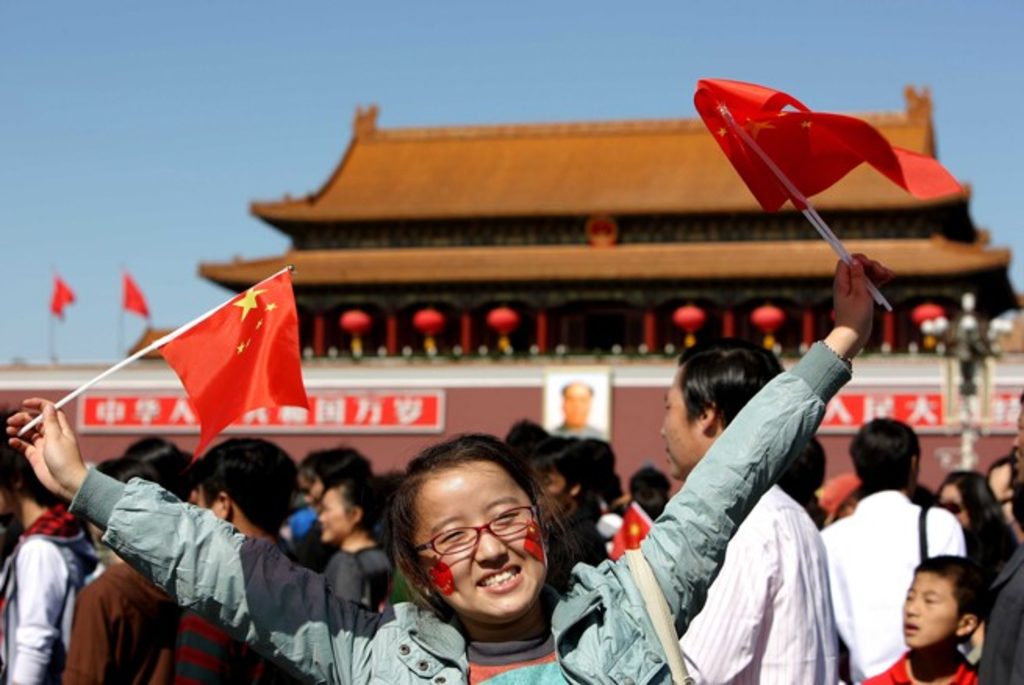October 1, 1949, is celebrated as the National Day of the People’s Republic of China, but it’s important to note that the PRC was not actually founded on that exact day.
According to www.travelchinaguide.com, the true date of Chinese independence was September 21, 1949.
The grand ceremony held at Tiananmen Square on October 1, was to mark the establishment of the Central People’s Government of the new nation.
The following day, October 2, 1949, the new government passed the “Resolution on the National Day of the People’s Republic of China,” officially declaring October 1 as the Chinese National Day.
Since 1950, October 1 has been celebrated annually across China with grand festivities. This day serves as a symbol of the founding of the new government and the beginning of a new era for China, and it remains one of the country’s most important and widely observed holidays.
On this day, lots of large-scaled activities are held nationwide.
The seven-day holiday from October 1 to October 7, is called ‘Golden Week’, during which a large number of Chinese people go travelling around the country.
This week-long holiday is one of the longest public holidays in China, so people can enjoy both short-distance and long-distance trips during this time.
Also since the weather remains clear and temperatures are pleasant and comfortable, many people believe this is a golden time for traveling.
How do Chinese people celebrate China’s National Day?
Chinese National Day is celebrated across mainland China, Hong Kong, and Macau with a variety of government-organised events, including fireworks, concerts, sports, and cultural activities.
Public spaces are decorated with patriotic themes, and portraits of national leaders, especially Mao Zedong, are prominently displayed.
The celebrations reflect national pride and unity. In addition to the domestic festivities, many Chinese communities abroad also observe the holiday, marking it as a significant occasion in Chinese culture and history. The day serves not only as a national celebration but also as a symbol of China’s identity at home and around the world.
Below are a few ways Chinese celebrate their National Day;
1. National Flag-raising ceremony
The 6am National Day flag-raising ceremony is organised in Tian’anmen Square. During this important ceremony, national flag guards march from the Tian’anmen Gate Tower.
Anyone can attend the ceremony, including the general public and tourists.
The event is widely televised.
Although a ceremonial flag-raising also takes place on the first day of every month of the year, the number of people attending the ceremony on October 1, is generally greater than those attending the ceremony on ordinary days.
2. Anniversary activities
During the holiday, communist leaders also offer flowers to the monument of the People’s Heroes to commemorate the martyrs who died in the fight for the liberation of China.
Many overseas Chinese Communities also celebrate the event and organise a flag-raising ceremony during the festival.
3. China National Day evening gala event
The National Day Evening Gala features performances such as songs and dances that highlight patriotism and celebrate China’s development.
This festive event evokes a strong sense of national pride among attendees.
Alongside the gala, activities like fireworks, painting, and calligraphy exhibitions add to the celebratory atmosphere.
National Day also marks the start of Golden Week, a popular time for shopping, as malls and stores offer significant discounts.
The combination of cultural festivities and commercial events makes the holiday both meaningful and enjoyable for many Chinese people, providing an opportunity to celebrate the nation while enjoying leisure and entertainment.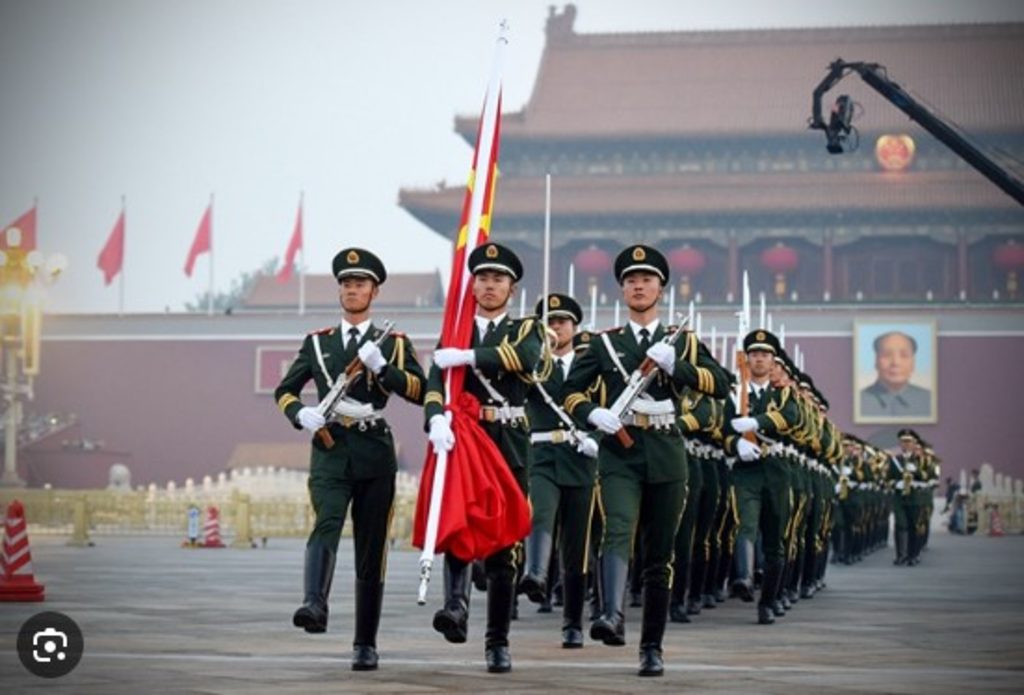
During this important ceremony, national flag guards march from the Tian’anmen Gate Tower.
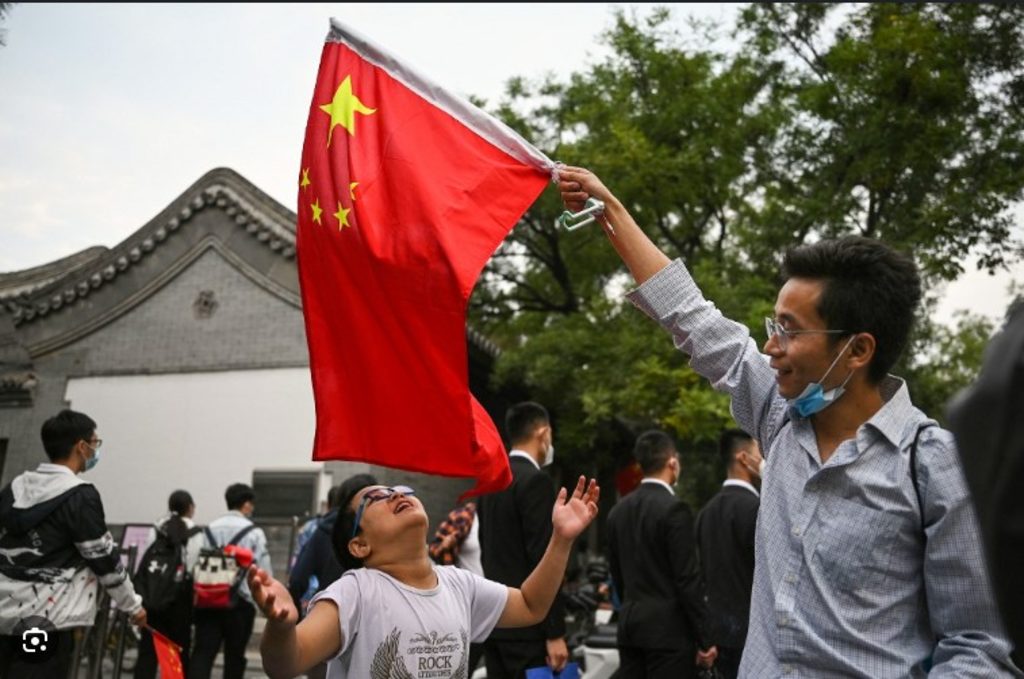
This festive event evokes a strong sense of national pride among attendees.
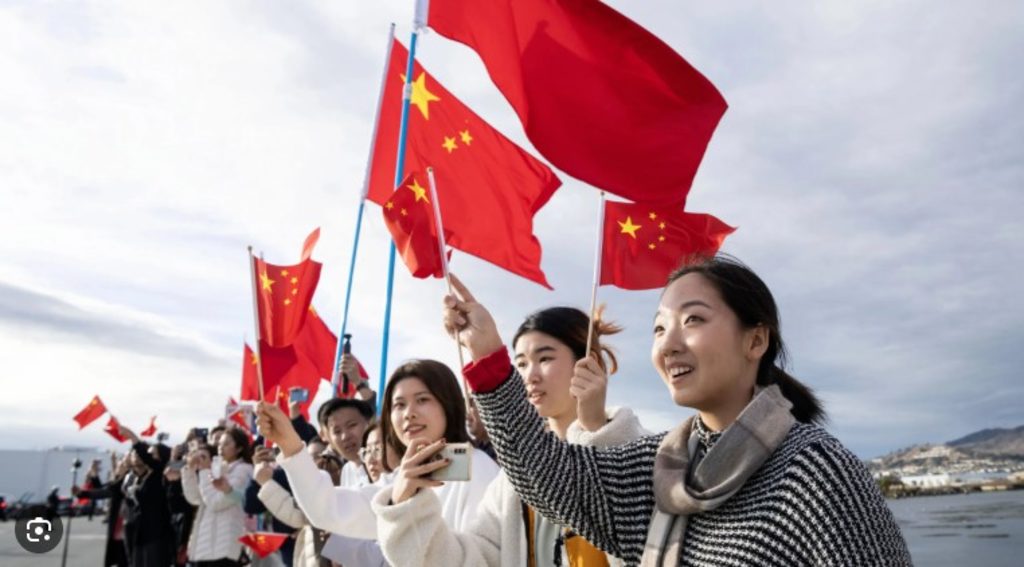
The day serves not only as a national celebration but also as a symbol of China’s identity at home and around the world. Pictures: CHINADAILY
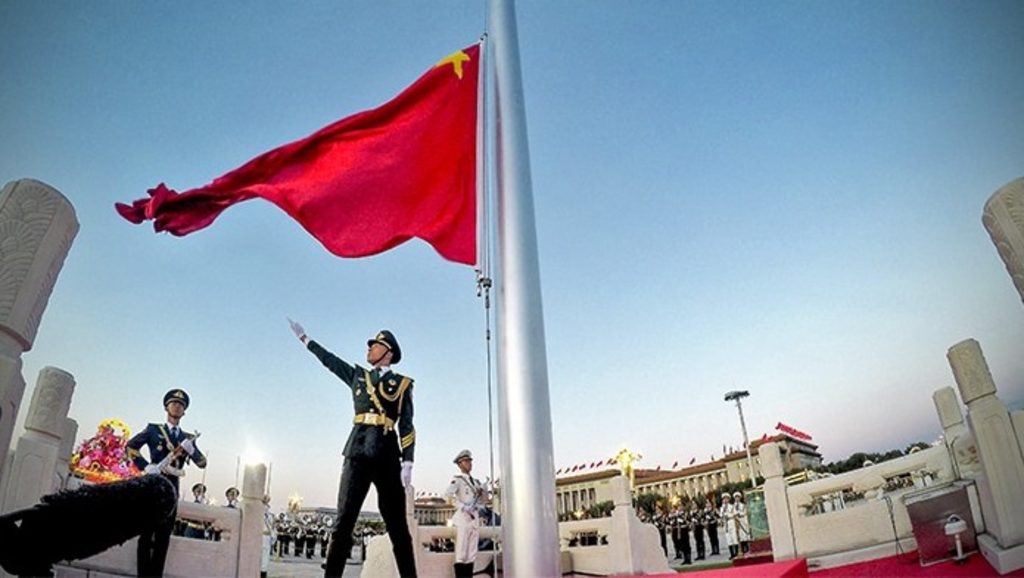
The combination of cultural festivities and commercial events makes the holiday both meaningful and enjoyable for many Chinese people, providing an opportunity to celebrate the nation while enjoying leisure and entertainment.

